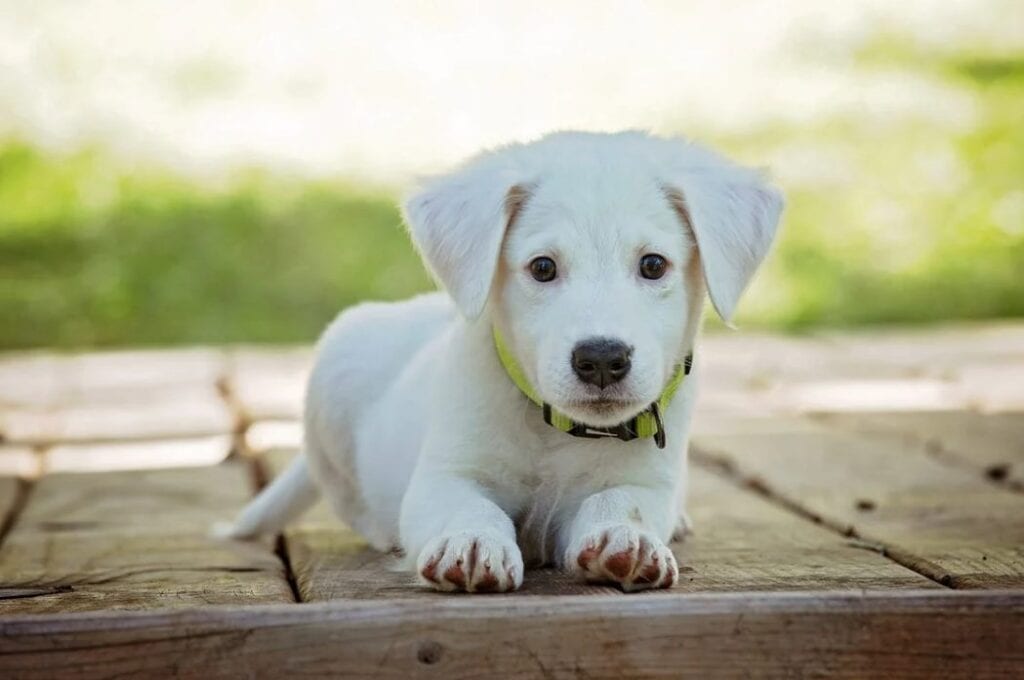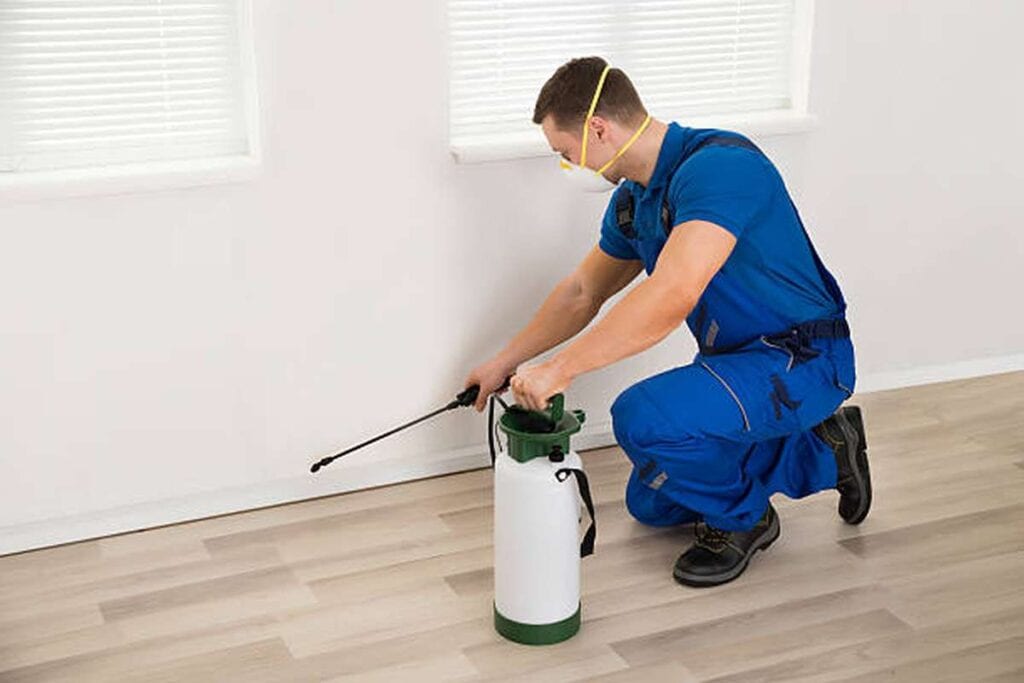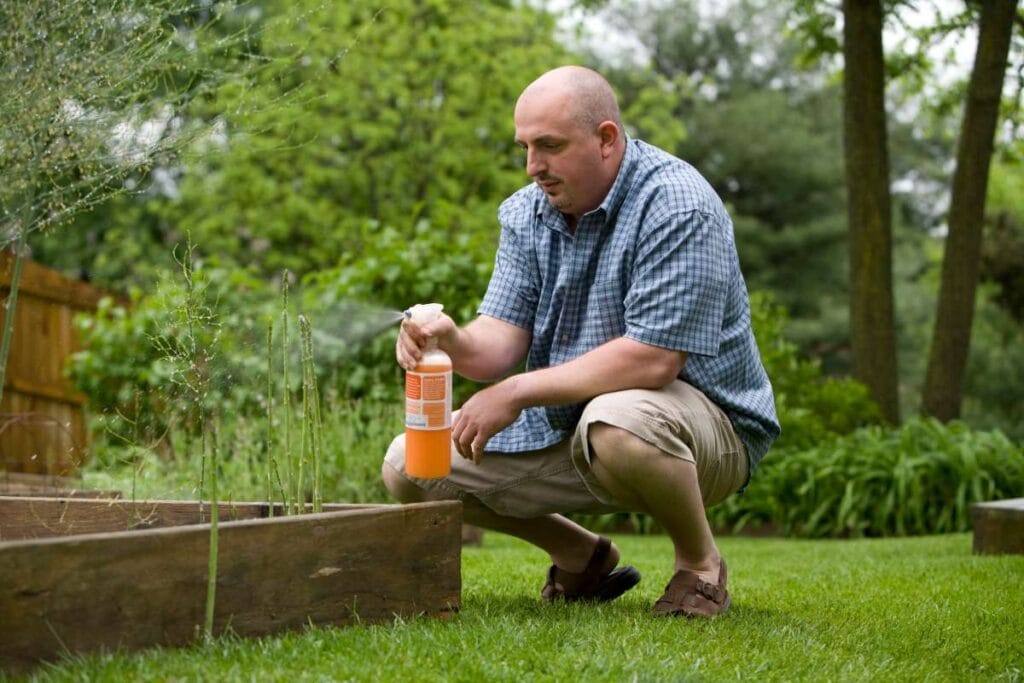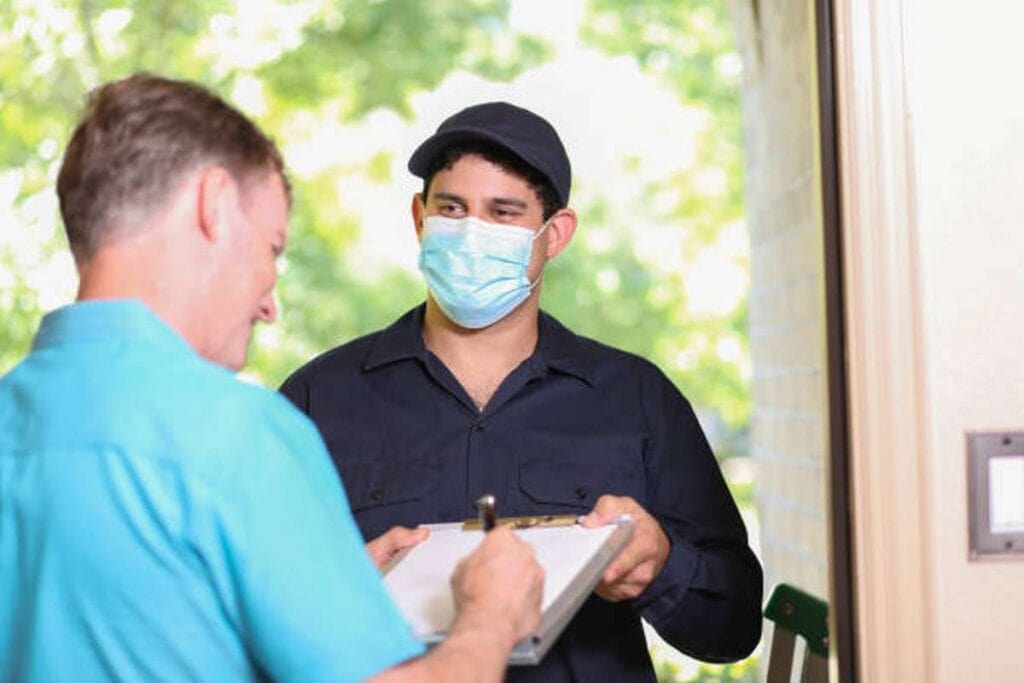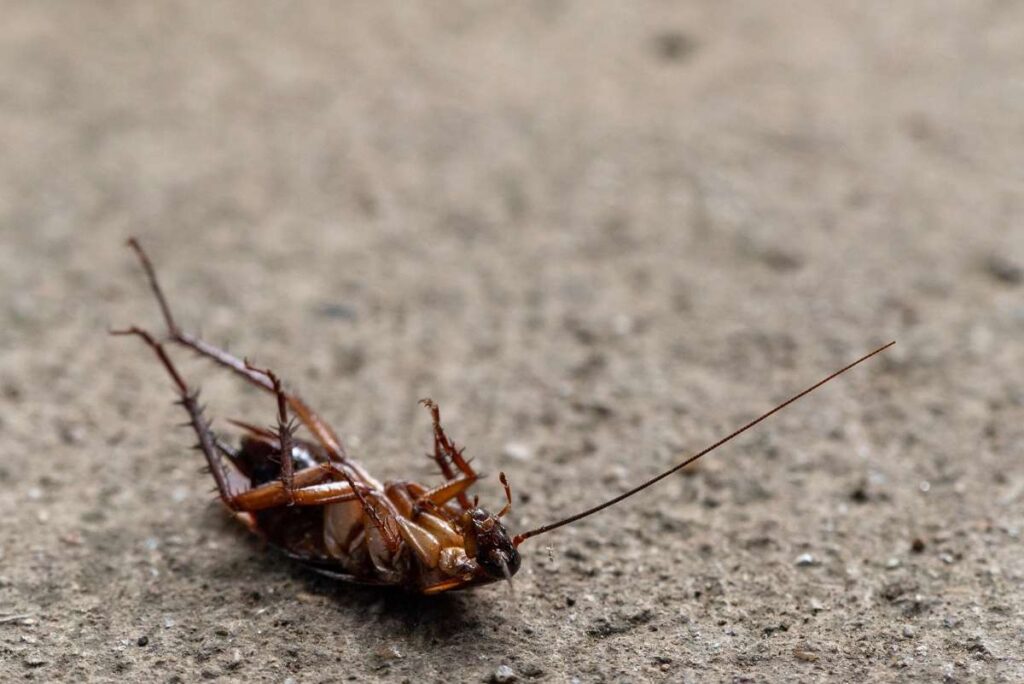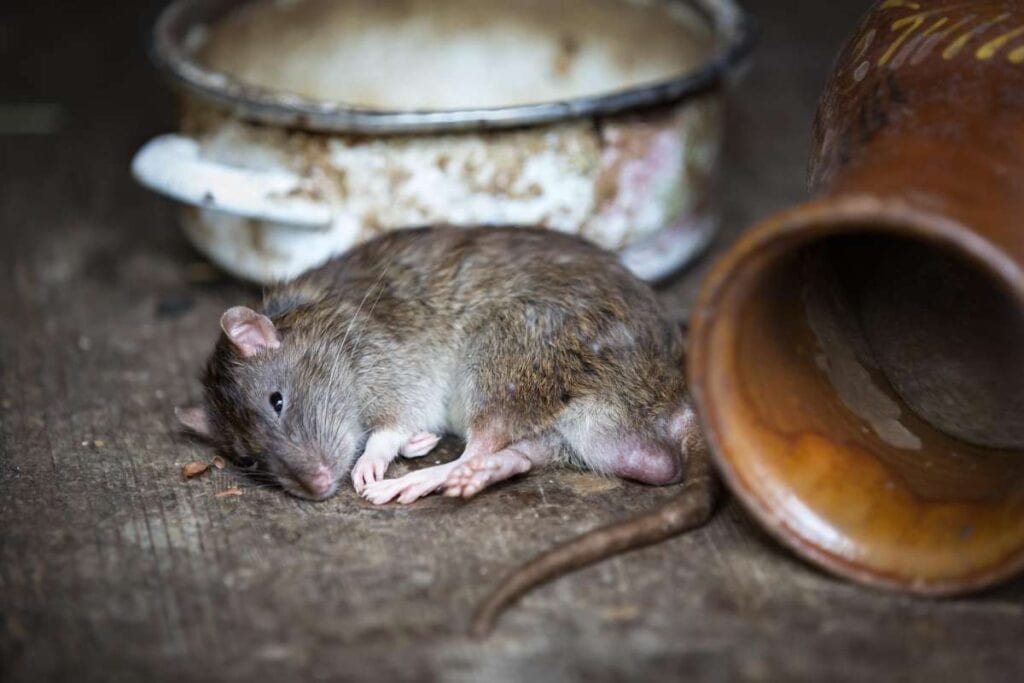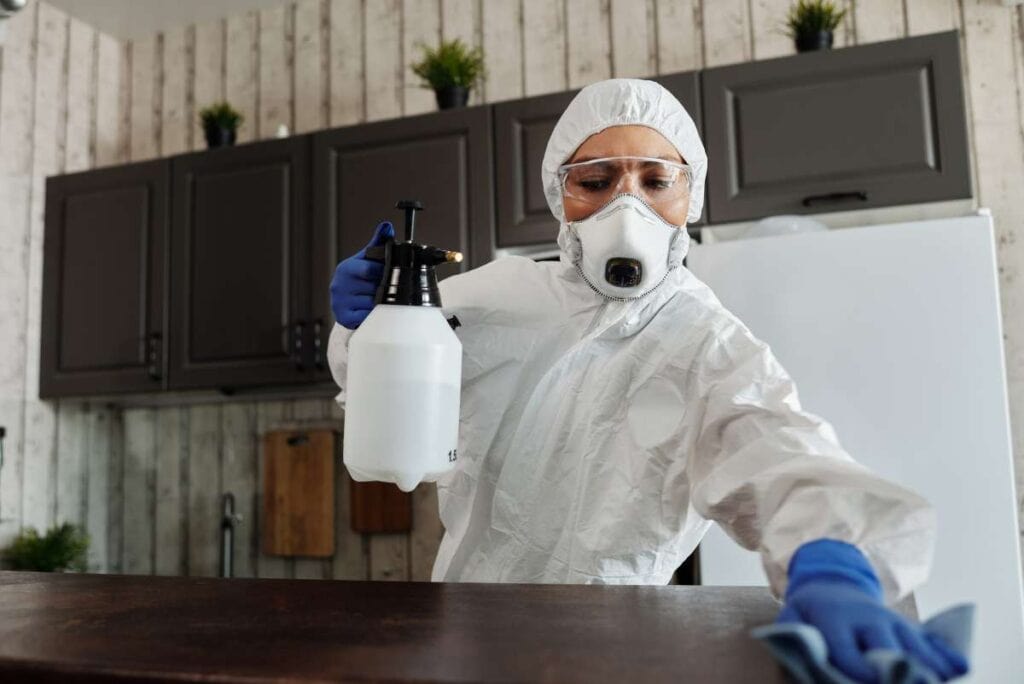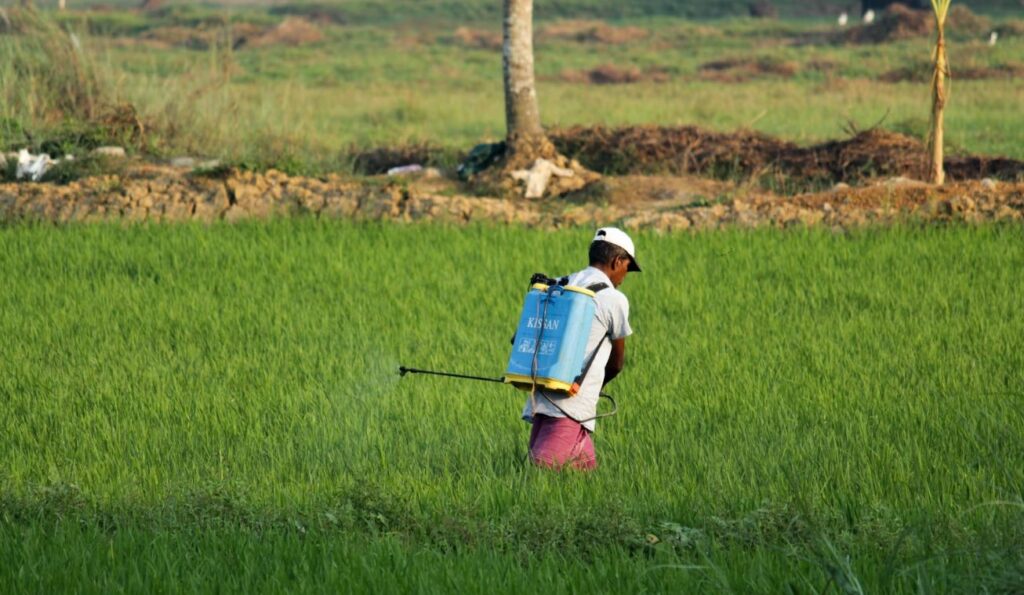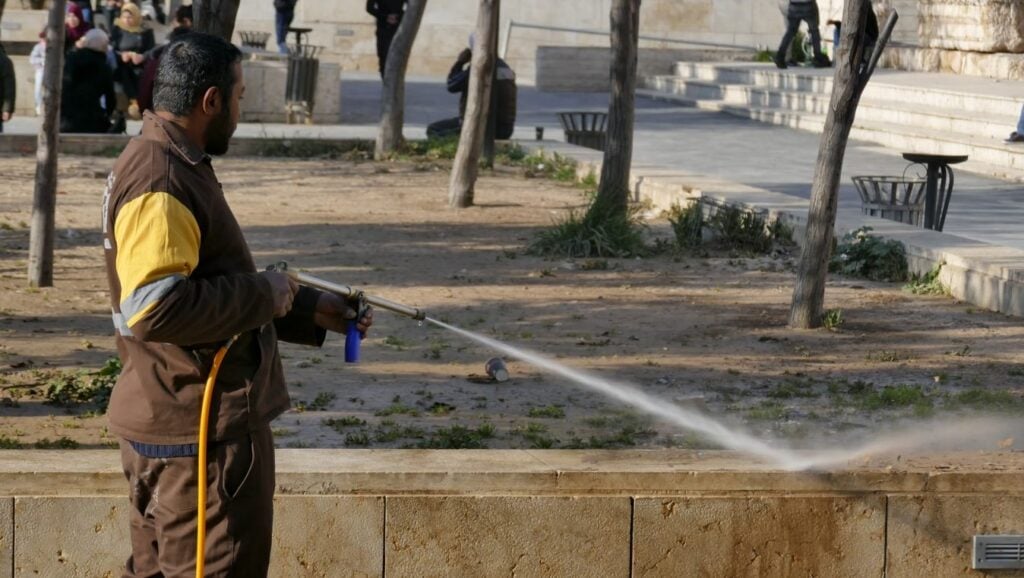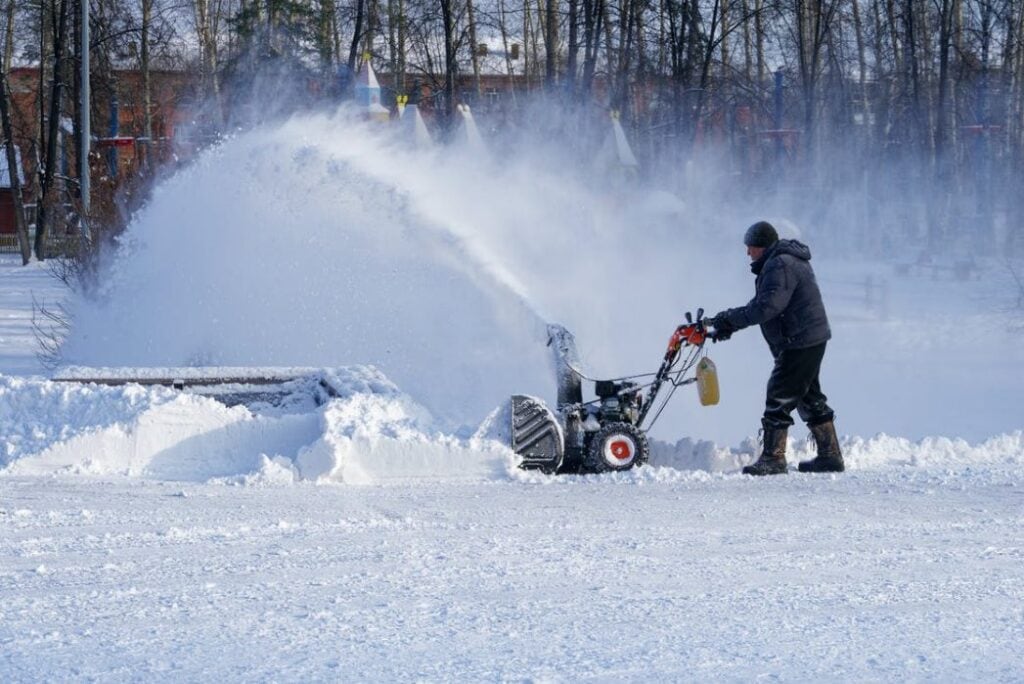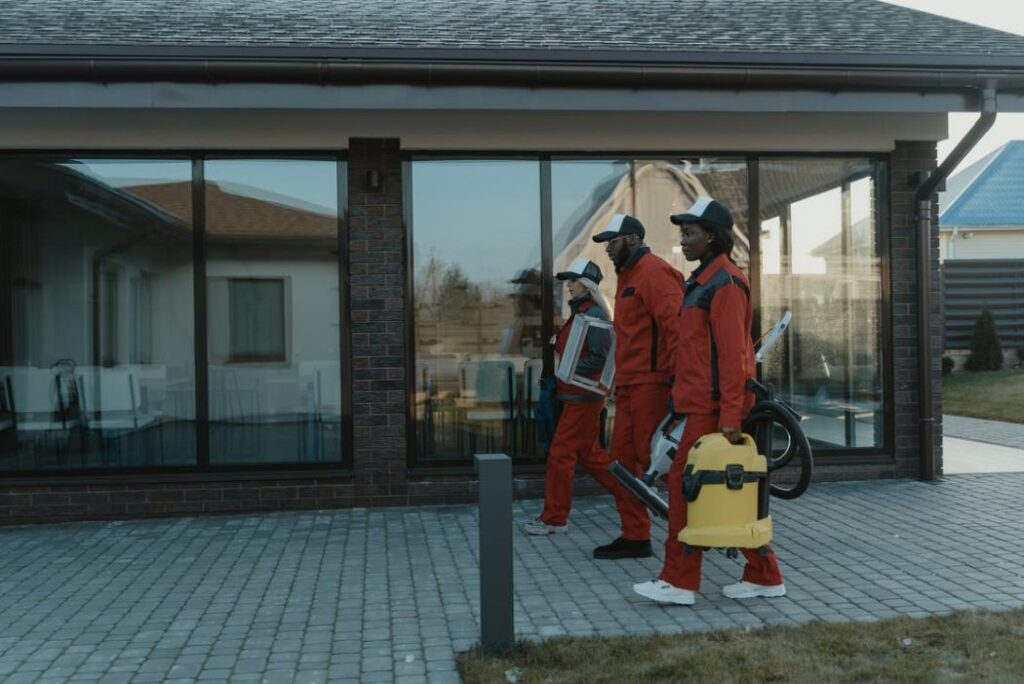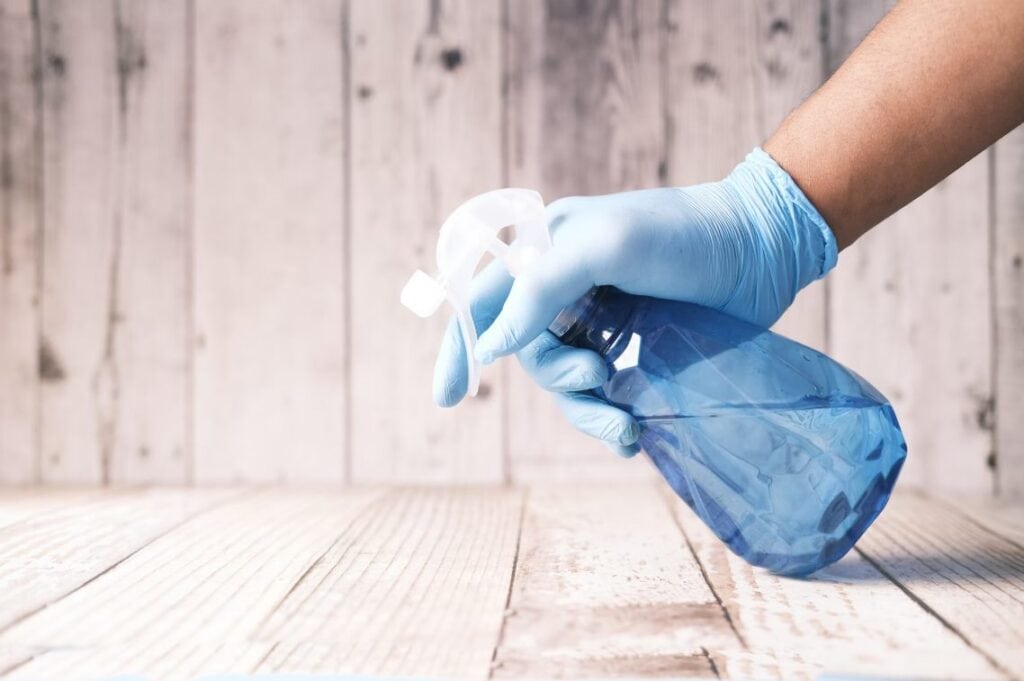Because of this, they frequently find themselves in precarious circumstances, such as stumbling upon a wasp's nest. In a similar vein, dogs have been known to be drawn to the scent of rodents and other vermin, leading them to consume poison in their pursuit of prey unintentionally.
Therefore, could pest control be dangerous for dogs? Simply put, the answer is yes; it is possible. However, you can take measures to safeguard your four-legged pal from the risks involved.
FAQs About Pest Control
Do not let pets back into the treated area until it has dried completely. Birds and reptiles require extra care and attention.
Most pesticides and insecticides (especially those sold in spray cans) are simple irritants that can cause clinical signs such as drooling, nausea, vomiting, and diarrhoea in dogs and cats.
If you spray a pesticide on your lawn, wait 48 hours before letting your pets run around in the garden.
If your dog has shown improvement after treatment, your vet will want to monitor him for at least 24 hours to ensure he stays that way.
2-4 hours, until dry.
What Is Pesticide Poisoning?

Dogs can become poisoned by pesticides in various ways, including through inhalation or consumption of the poisonous substance. It is primarily due to the widespread use of pesticides in and around homes and in public places.
Pesticides can be chemical or natural substances and can be produced either naturally or through scientific research to eradicate unwanted pests. These agents are designed to entice unwanted senses or predators and then kill them once they have been lured in. Insects, plants, fungi, rodents, bacteria, and larvae are just some organisms you can eliminate with the help of biocides. The use of pesticides is unfortunately widespread. These chemicals can be discovered in various locations, including homes, garages, farms, sheds, yards, and gardens, as well as on plants.
Protecting Pets During A Pest Control Service
People typically pay attention to the well-being of their children and other members of their families before, during, and after treatment for pest control. However, they rarely remember to provide the same care for their pets, which may include feathered, scaly, or fishy companions in addition to their canine and feline companions. Even though it is generally believed that the pest control treatments will not significantly impact the pets, there is still a chance that they will harm them in some way. Specifically, dogs and cats are particularly susceptible to ingesting pesticides, which can also be absorbed through their skin. They can also breathe in the odour because they typically use their nose to investigate everything. Under these circumstances, you are required to take additional precautions to protect your pets before, during, and after a pest control service.
Steps To Take Before Availing The Service
Before beginning treatment for pest control, you are required to take the following precautions to ensure the safety of your pets:
Do-it-yourself pest control is something you should never attempt. If you have pets in your home, it is best to hire a professional pest control service company because they have the experience and expertise to ensure the safety of your pets.
Inform your service provider about your animal companions as follows: During the consultation call, you should inform the pest control contractor about any pets you have so that they can personalise the treatment programme. It will allow the pest control contractor to serve your needs better.
Ask Your Vet: In this regard, you may also wish to consult your veterinarian before the arrival of service members to protect your pets.
Read the label. Before beginning the pest control treatment, you should ensure that the pesticide treatment that will be used is safe for your pets by reading the label on the pesticide treatment that the service provider will use.
How To Safeguard Pets During The Treatment
Keeping your pets out of the area being treated for pests is the best way to ensure their safety while the treatment is being carried out. Also, if the treatment is taking place inside your home, you should not let these people into your property while it is being done.
How much should time pass after the conclusion of the service before you take the dogs outside?
It is locating a provider of services that welcomes pets.
If you are seeking a pest control professional who can help you get rid of those annoying creatures once and for all, All Pests is the company for you.
All Pests offers a professional and affordable service that will rid your home or office of any unwanted pests.
So whether it's ants, spiders, cockroaches, or any other type of pest, we can help!
We understand that dealing with pests can be stressful and inconvenient. That's why we offer a range of services that are designed to meet your needs and budget.
Call 0409 523 029 to find out more about our services.
Pets And Pest Control
During treatments for pest control in the home, people typically take a lot of precautions to ensure the safety of their children. On the other hand, domesticated animals such as dogs, cats, birds, fish, reptiles, and so on may not receive the same degree of attention as humans. It's possible that some people forget to keep an eye out for these tiny creatures, while others are entirely ignorant of the dangers that could potentially occur to them.
Most treatments for pest control are thought to be safe and do not have any effect on pets; however, a few could end up being harmful. Additionally, pets like cats and dogs use their noses to investigate everything. It is easy for them to inhale the pesticide, absorb it through their skin, or ingest it. Despite the relatively low toxic concentration, there is still the possibility that it will have adverse effects in the long run. The animals can inhale the pesticide during spraying treatments and may even absorb it through their skin.
Talk to the technician and let the pest control company in Fort Mill, South Carolina, that services you're home know about your pets when discussing the treatment options themselves. If necessary, enquire about pest control options that are safe for pets.
Read The Label: If you are going to do pest control on your own, the first thing you should do is read the product's label very carefully. During the treatment, the usage instructions and precautions will provide information on handling situations involving children and animals.
Naturally inquisitive pets are likely to come into contact with the applied pesticide while it is in its wet state. Wait until the treatment has completely dried out, and then thoroughly ventilate the room or rooms before allowing the pets to go back inside. It is recommended by some companies that provide pest control services to remove the pet's bedding, food, water bowl, and toys as well.
It is always best to seek the local veterinarian's advice before the pest control troops begin their work, especially if you have exotic animals or birds on your property.
Suitable Place: When using rodent or insect baits to trap unwanted creatures, keep them hidden from pets. These products can harm animals' health.
Pets require careful planning and pest control.
Can Pesticides Harm Dogs?
Are pests inevitable now that there are more opportunities for them to find food and shelter? Some of the top exterminators in the Triangle area say that nobody should have to put up with pests, not even their dogs. That's why there's pest control.
Many dog owners are concerned that pest control could harm their pets. The use of chemically produced insecticides is the most common pest control method. These insecticides can, in most grocery stores, are simple to apply and, despite some criticism, do an excellent job of reducing pest populations. A potential risk to children and animals is a drawback.
Dead animals in your yard or home? All Pests Melbourne is here to help you with the removal of dead animals, as quickly and affordably as possible. We know the importance of keeping your home clean and free of pests, so we'll work hard to make sure the job is done right - and fast.
The Danger To Dogs

Dogs' sunny dispositions are one of the reasons people love them so much. However, it is precisely this quality that makes them vulnerable. They have a natural inclination to explore new areas and learn about things. They seem to be sniffing around for something that only they can detect. Dogs won't take precautions against pesticide exposure, so owners should keep that in mind.
Homeowners commonly use pesticides to eliminate unwanted insects, plants, rodents, and other animals. Pesticides are either sprayed all over the house and yard or given themselves. Although pesticides have benefits, it's important to remember that they could harm your dogs.
Pesticides pose an even more significant threat to the health of our dogs than they do to us. Cancer, nerve damage, and congenital disabilities are just a few of the long-term effects of exposure to chemical pesticides in dogs, according to studies. Were we torn between the competing goals of pest control and pet safety? You need not be. Here are some chemical pesticides you should avoid using in your home if you have dogs.
Phosdrin is an accessible organophosphate insecticide. This poison can enter the body through three routes: inhalation, skin absorption, and ingestion. Nausea, vomiting, paralysis, respiratory distress, and irregular heartbeat are all symptoms.
Crops and vegetables are often protected with nudrin. It is a carbamate insecticide that acts as an enzyme exhibitor and is highly poisonous.
Spectracide is an insecticide belonging to the class of organophosphates, which can cause harm to the insect's nervous and respiratory systems. However, long-term exposure has been shown to have similar effects in humans and animals. Poisoning manifests itself clinically with gastrointestinal distress, loss of consciousness, tremors, and eventually coma.
You can rest assured that spraying your property with these will have disastrous effects on your dog. You can find safe pesticides for dogs but still do the job.
Dog-Friendly Pesticides
Keep in mind that not all natural pesticides are safe for canines. Your dog's health could be at risk if you assume it is.
A chemical called acetamiprid was first used. The evidence accumulated over time showed that it successfully eliminated the bed bug population. A mixture of synthetic organic compounds emits no odour. The Environmental Protection Agency has deemed it harmless to all living things. Soil metabolism quickly breaks it down, so it doesn't last long. Always read the label before use.
Lufenuron: It inhibits flea development to control infestations. Lufenuron prevents hatching. It's an effective flea control solution when combined with adult flea insecticides.
Pyriproxyfen: The Environmental Protection Agency has approved this for use on pets, and it is safe enough to use directly on them to prevent fleas and ticks. Dogs given a hefty dose of pyriproxyfen may experience vomiting, but they will recover the following day fully. Dogs exposed to low levels of the substance will not share any adverse effects. Other insects you can control using pyriproxyfen include carpet beetles, cockroaches, ants, and mosquitoes.
Spinosad: SPinosad is toxic to insects but safe for dogs. It is effective because it disrupts the insect's nervous system when ingested or touched. It will eventually become paralysed and die from involuntary muscle contractions.
Nitenpyram: Nitenpyram is a neonicotinoid used to control fleas in dogs and cats. While it is effective against adult fleas, it is not as effective against flea eggs. It is safe for use on your dog if you follow the directions on the label. As the fleas die off, your dog may scratch at himself, but this is only temporary and will go away on its own. However, if you see something out of the ordinary, feel free to contact your friendly neighbourhood vet.
Imidacloprid, number six on the list, is a pesticide designed to mimic nicotine's results. Many insects are killed by nicotine. Termites, sucking insects, and fleas are all targets for this product. This product can be used without worry around canine companions. Insects are unable to move or perform other routine actions because the nerves responsible for these functions have been disrupted. Plants take up the poisonous chemical imidacloprid from the soil and distribute it throughout the entire plant, including the leaves, stems, flowers, and fruits. Insects that consume these will also be poisoned. These conditions are sure to prove fatal.
Methoprene, at number seven, is a crucial insect hormone. As a result, it stifles the maturation and spread of insect populations. It is effective against various insects, including fleas, moths, flies, and beetles. Molting, laying eggs, and hatching are all disrupted. Insect reproduction is stifled in this way as well.
Read The Label
Although the above pesticides are generally safe, they still pose a risk of poisoning if misused. A possible danger is overdosing. Before using any of these pesticides, read the instructions on the label.
If your dog, his food bowl, or any of his toys are in the area, you should wait to treat your lawn with pesticides. If there's one thing you can do to kerb your dog's natural inclination to explore, this is it. Avoid pellet-shaped pesticides. This pesticide looks like nutrient-rich food.
Don't combine chemical fertilisers with organic ones. That's because natural pesticides have a pleasant flavour for canines.
Keep all pesticides in a secure location, away from the reach of children.
Your dog could also come into contact with your neighbour's pesticides. When your dog is outside, you have zero say in their behaviour. Therefore, the best course of action is to inquire about the specifics of the pesticides your neighbours employed.
Determine the nature of the substance, the dose, and the route of administration, if at all possible. Please bring a sample of your dog's vomit if possible. If you can, please bring the pesticide kit along.
While pesticides have their uses, they must be used with extreme caution around children and animals. Learn from the best Triangle pest control experts if you're still confused about which pesticides to use and how to apply them safely.
Dead animals and carcasses piling up around your property? All Pests offers quick, affordable dead animal and carcass removals in Melbourne. We have the experience and equipment to safely remove any dead animal or carcass, no matter how big or small.
Pet-Harming Pest Control
Pet-friendly pest control products frequently focus on online discussions about eliminating rodents, insects, and other similar pests. Insecticides formulated for use around pets, as well as other non-toxic chemicals and traditional remedies like diatomaceous earth, are commonly recommended. And these are fine, provided that your primary focus is on over-the-counter treatments (which are likely to harm pets if improperly used). However, if you're looking for a professional pest control service, you shouldn't be so focused on the products.
Due to their hectic schedules, our clients often ask us if they need to temporarily relocate their pet while we perform a treatment or if we can do it in the comfort of their own home. Getting Fido or Fifi out of the house and away from the house before the technician arrives is complex, and we get that.
How Can Pets Be Safe During Pest Control?
Follow these easy precautions to ensure the safety of your pets if they must remain at home during treatment. In this category, we find:
- That means excluding them from exam and treatment rooms. While the Smithereen technician is on the premises, please keep any pets in carriers. They won't be able to come into contact with any pesticides by accident.
- Never let pets back into a treated area before it has dried completely.
- Birds and reptiles require extra care and attention. Cover their cages to keep out any overspray or aerosolised droplets of pesticides, as these pets are especially vulnerable to these substances.
Confine pets during the visit
Although pest control is harmless to animals, it should be kept inside during the exterminator's visit. Animals are naturally curious, and they may want to investigate any unusual sights or sounds that have recently appeared in their environment. Even though our exterminators are animal lovers, we ask that you keep your pets away from our working areas.
Modern pest control methods and products are designed with the safety of your pets in mind, so you can relax while they are being treated.
Conclusion
Is it true that pesticides are dangerous for dogs? Most modern pest control methods are safe for dogs and humans when used properly, though some products can be harmful if ingested or come into contact with skin. However, read labels carefully and follow all safety instructions before using any chemical product near your pets.
Content Summary
- Specifically, dogs and cats are particularly susceptible to ingesting pesticides, which can also be absorbed through their skin.
- Under these circumstances, you are required to take additional precautions to protect your pets before, during, and after a pest control service.
- If you have pets in your home, it is best to hire a professional pest control service company because they have the experience and expertise to ensure the safety of your pets.
- Read the label.
- Before beginning the pest control treatment, you should ensure that the pesticide treatment that will be used is safe for your pets by reading the label on the pesticide treatment that the service provider will use.
- Talk to the technician and let the pest control company in Fort Mill, South Carolina, that services you're home know about your pets when discussing the treatment options themselves.
- If necessary, enquire about pest control options that are safe for pets.
- Even if the Fort Mill, SC pest control treatment is safe, take precautions.
- Many dog owners are concerned that pest control could harm their pets.
- Dogs won't take precautions against pesticide exposure, so owners should keep that in mind.
- Although pesticides have benefits, it's important to remember that they could harm your dogs.
- Pesticides pose an even more significant threat to the health of our dogs than they do to us.
- Cancer, nerve damage, and congenital disabilities are just a few of the long-term effects of exposure to chemical pesticides in dogs, according to studies.
- Here are some chemical pesticides you should avoid using in your home if you have dogs.
- You can find safe pesticides for dogs but still do the job.
- Dog-Friendly PesticidesKeep in mind that not all natural pesticides are safe for canines.
- Lufenuron prevents hatching.
- It's an effective flea control solution when combined with adult flea insecticides.
- Spinosad: SPinosad is toxic to insects but safe for dogs.
- Nitenpyram: Nitenpyram is a neonicotinoid used to control fleas in dogs and cats.
- Imidacloprid, number six on the list, is a pesticide designed to mimic nicotine's results.
- If your dog, his food bowl, or any of his toys are in the area, you should wait to treat your lawn with pesticides.
- Keep all pesticides in a secure location, away from the reach of children.
- Your dog could also come into contact with your neighbour's pesticides.
- Therefore, the best course of action is to inquire about the specifics of the pesticides your neighbours employed.
- Please bring a sample of your dog's vomit if possible.
- Learn from the best Triangle pest control experts if you're still confused about which pesticides to use and how to apply them safely.
- However, if you're looking for a professional pest control service, you shouldn't be so focused on the products.
- Confine pets during the visitAlthough pest control is harmless to animals, it should be kept inside during the exterminator's visit.
- Even though our exterminators are animal lovers, we ask that you keep your pets away from our working areas.
- Modern pest control methods and products are designed with the safety of your pets in mind, so you can relax while they are being treated.

